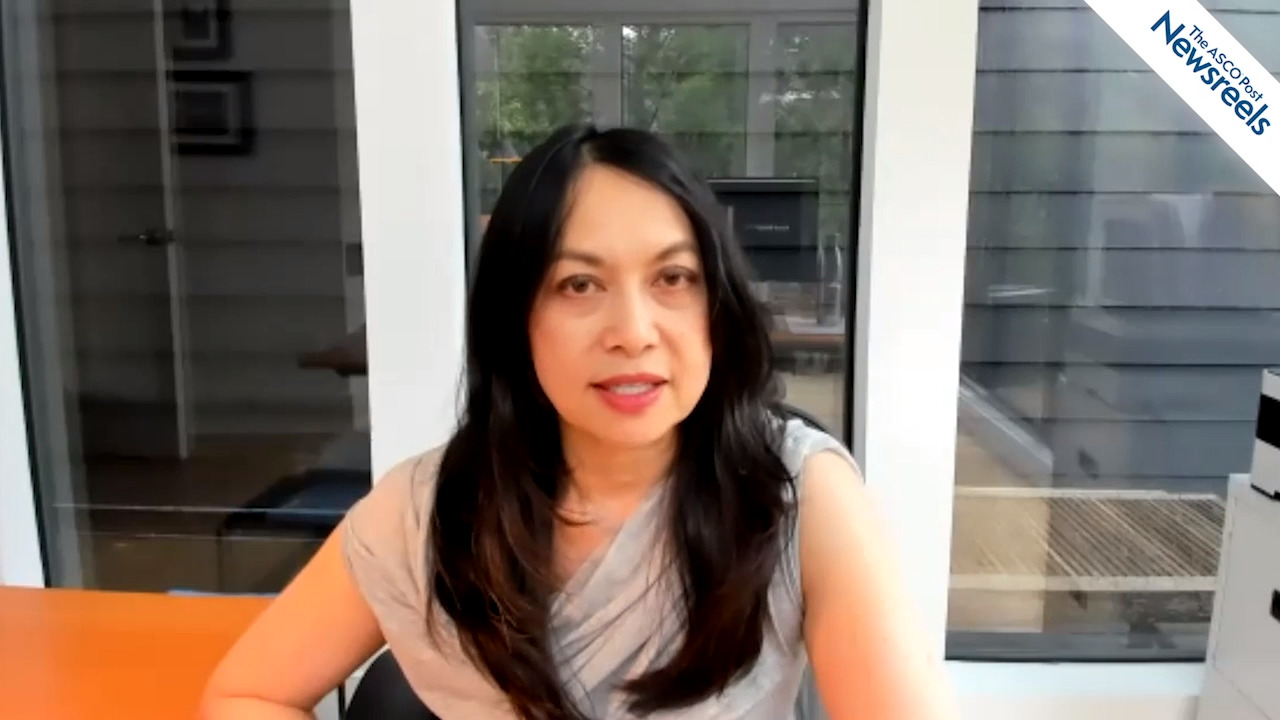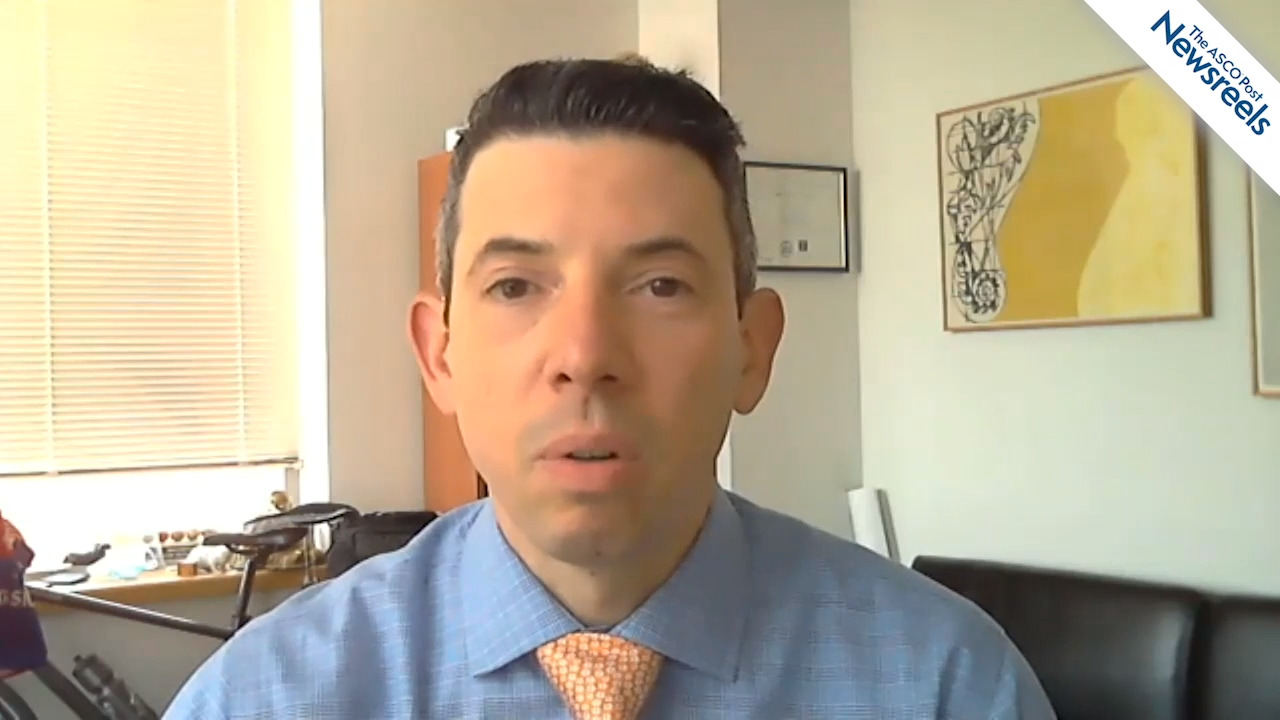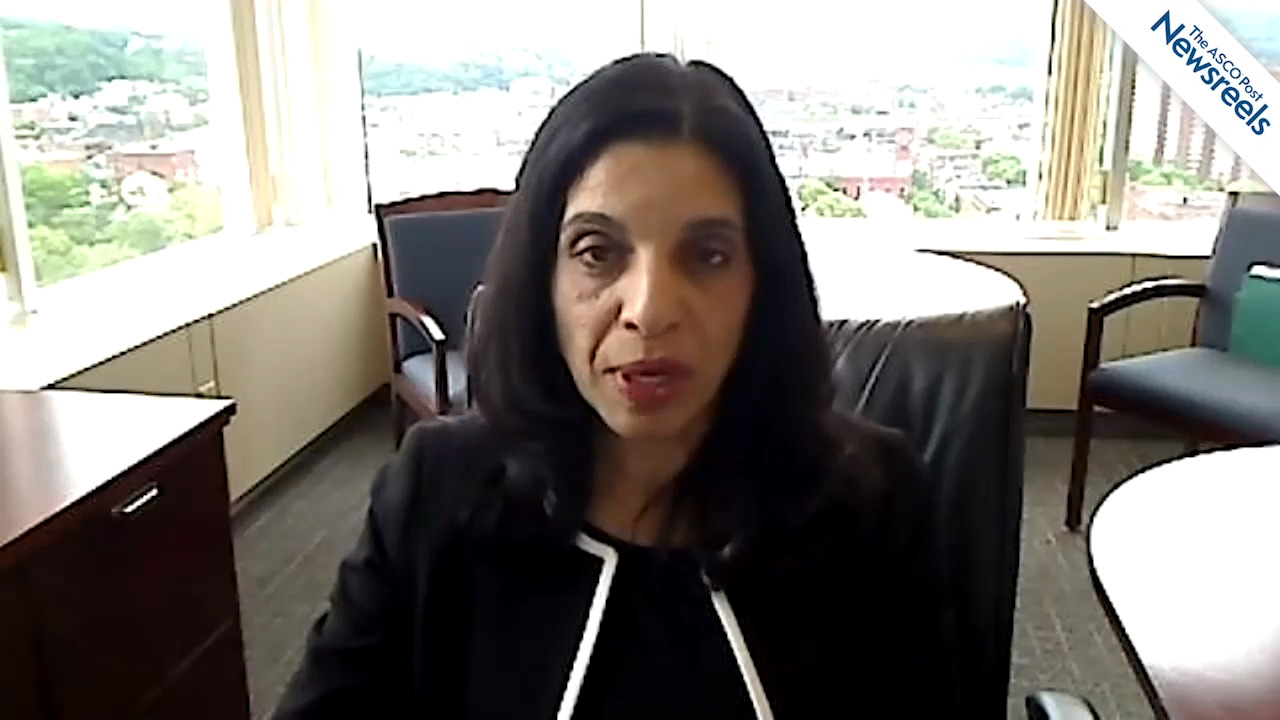Brian K. Link, MD, on Mantle Cell Lymphoma: Expert Perspective on Treatments Now and Those to Come
2021 ASCO Annual Meeting
Brian K. Link, MD, of the University of Iowa Carver College of Medicine, reviews three abstracts on state-of-the-art therapies for mantle cell lymphoma: bendamustine, rituximab, lenalidomide and bortezomib; treatment patterns and outcomes for previously untreated patients; and venetoclax, lenalidomide, and rituximab in newly diagnosed disease (Abstracts 7503, 7504, and 7505).
The ASCO Post Staff
Cathy Eng, MD, of Vanderbilt-Ingram Cancer Center, discusses two abstracts from a session she co-chaired: the phase II DEEPER trial, which explored the use of FOLFOXIRI plus cetuximab vs FOLFOXIRI plus bevacizumab as first-line treatment in metastatic colorectal cancer with RAS wild-type tumors; and the phase II FIRE-4.5 study, which investigated FOLFOXIRI plus either bevacizumab or cetuximab as first-line treatment of BRAF V600E–mutant advanced disease (Abstracts 3501 and 3502).
The ASCO Post Staff
Brian I. Rini, MD, of Vanderbilt University, discusses findings from KEYNOTE-426, the longest follow-up of a checkpoint inhibitor (pembrolizumab) combined with a VEGF/VEGFR inhibitor (axitinib) for first-line clear cell renal cell carcinoma. The trial results continue to support this combination as a standard of care for patients with previously untreated disease (Abstract 4500).
The ASCO Post Staff
Martin Reck, MD, PhD, of LungenClinic, discusses a 2-year update of the CheckMate 9LA study, which sought to determine whether nivolumab plus ipilimumab combined with two cycles of chemotherapy is more effective than four cycles of chemotherapy alone as a first-line treatment for patients with stage IV non–small cell lung cancer (Abstract 9000).
The ASCO Post Staff
Evan J. Lipson, MD, of Johns Hopkins University, discusses primary phase III results from the RELATIVITY-047 study, which showed that relatlimab plus nivolumab as a fixed-dose combination may improve progression-free survival compared with nivolumab monotherapy in patients with advanced melanoma. This is the first study to demonstrate a benefit from dual inhibition of the LAG-3 and PD-1 pathways.
The ASCO Post Staff
Priya Rastogi, MD, of the University of Pittsburgh, discusses results from the NRG Oncology/NSABP B-42 trial, which evaluated the utility of the 70-gene MammaPrint assay in predicting the benefit of extended letrozole therapy in patients who had completed 5 years of adjuvant endocrine therapy (Abstract 502).





